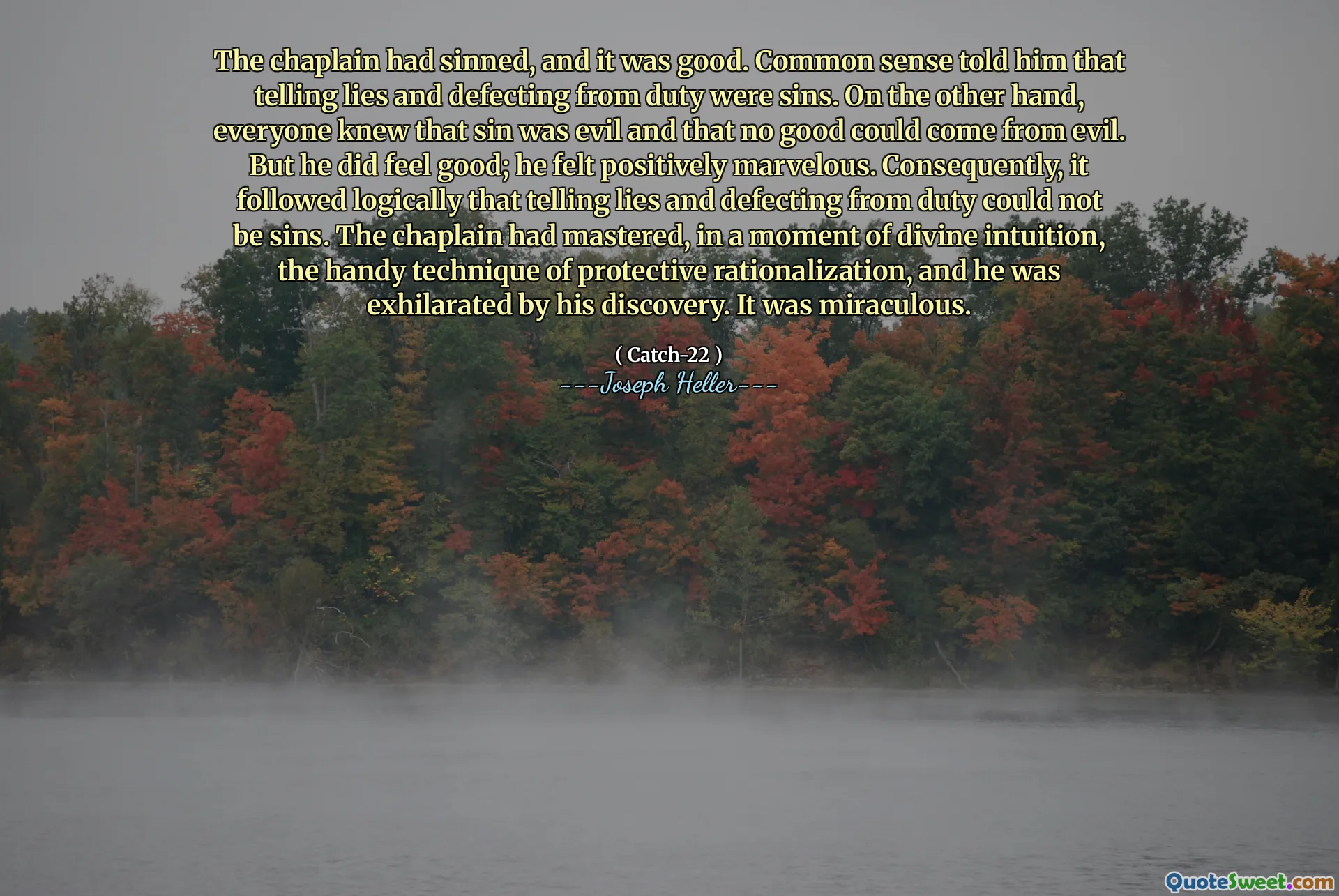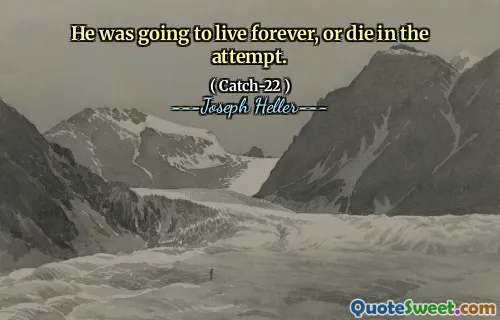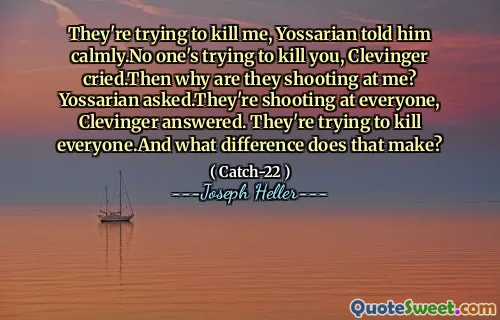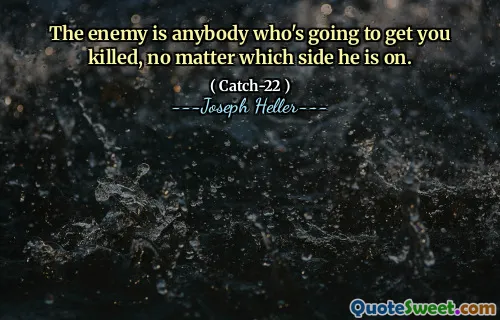
牧师犯了罪,很好。常识告诉他,说谎和责任叛逃是罪。另一方面,每个人都知道罪是邪恶的,没有任何善事可能来自邪恶。但是他确实感觉很好。他感到很棒。因此,从逻辑上讲,说谎言和叛逃不可能是罪过。牧师掌握了神圣的直觉时刻,这是一种方便的保护性合理化技术,他的发现使他感到振奋。这是奇迹。
(The chaplain had sinned, and it was good. Common sense told him that telling lies and defecting from duty were sins. On the other hand, everyone knew that sin was evil and that no good could come from evil. But he did feel good; he felt positively marvelous. Consequently, it followed logically that telling lies and defecting from duty could not be sins. The chaplain had mastered, in a moment of divine intuition, the handy technique of protective rationalization, and he was exhilarated by his discovery. It was miraculous.)
Rate the Quote
查看更多 »
Today Birthdays
1919 -
J. D. Salinger
1974 -
Ally Carter
1879 -
E. M. Forster
1968 -
Mark Lawrence
1839 -
Ouida
1958 -
Hamza Yusuf
1924 -
Charlie Munger
1897 -
Catherine Drinker Bowen
1940 -
Leonard Susskind
1767 -
Maria Edgeworth
1915 -
John Henrik Clarke
1864 -
Alfred Stieglitz
1863 -
Pierre de Coubertin
1716 -
William Wycherley
1874 -
Frank Knox
1956 -
Christine Lagarde
1972 -
Asghar Farhadi
1934 -
Lakhdar Brahimi
1953 -
Gary Johnson
1973 -
Saffron Burrows
1968 -
Cat Cora
1966 -
Ivica Dacic
1975 -
Ayman Odeh
1745 -
Anthony Wayne
1940 -
Frank Langella
1947 -
Jon Corzine
1895 -
J. Edgar Hoover
1922 -
Fritz Hollings
1826 -
Robert Rainy
1963 -
Laura Ingraham
查看更多 »






